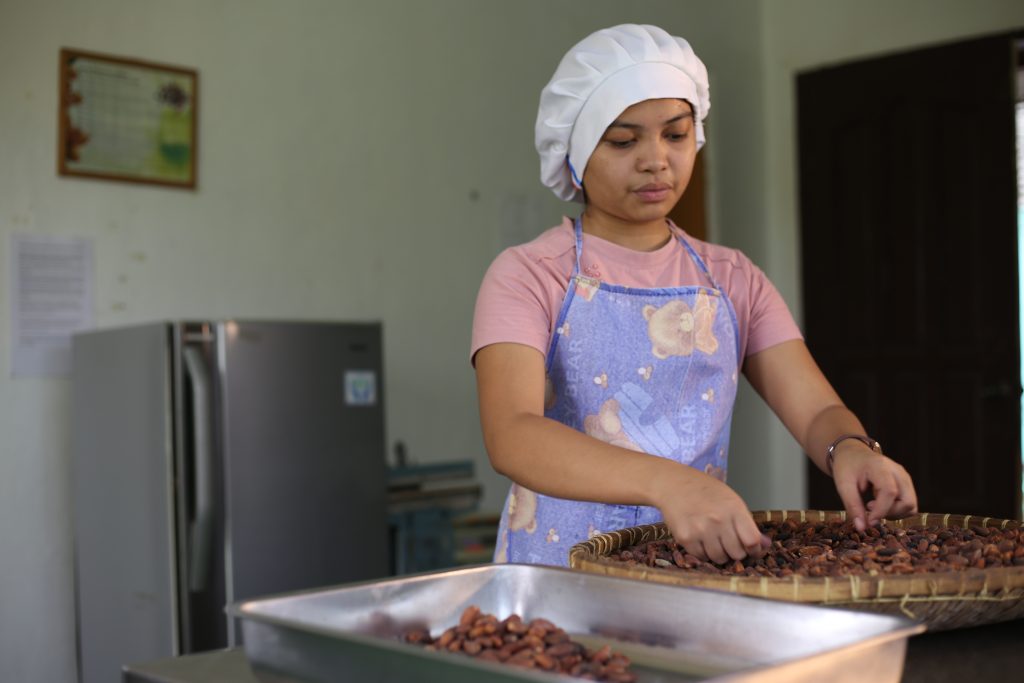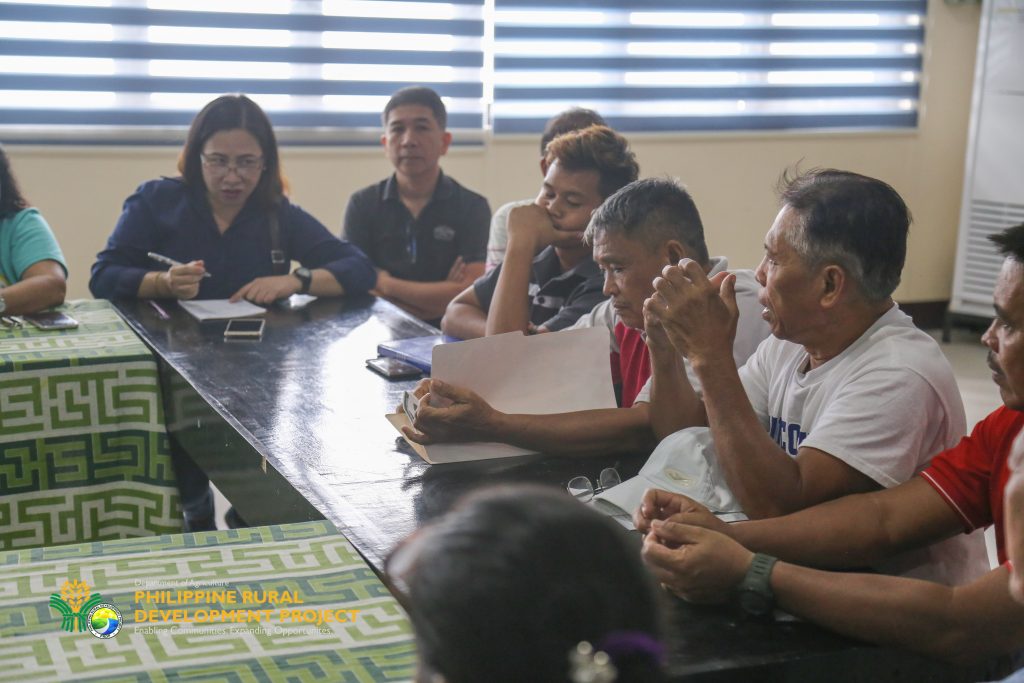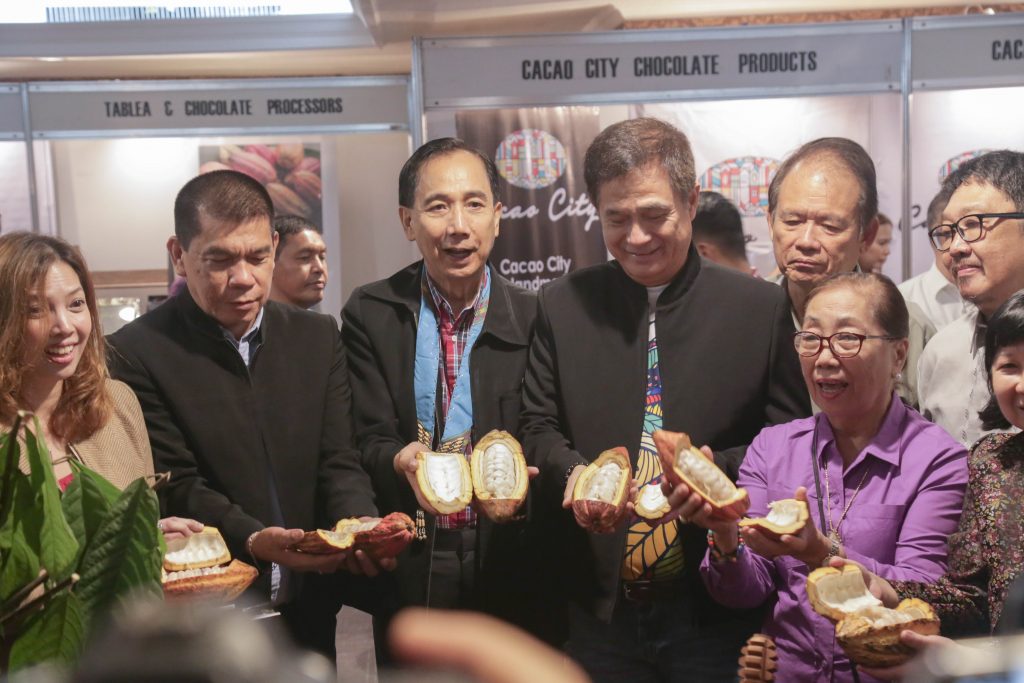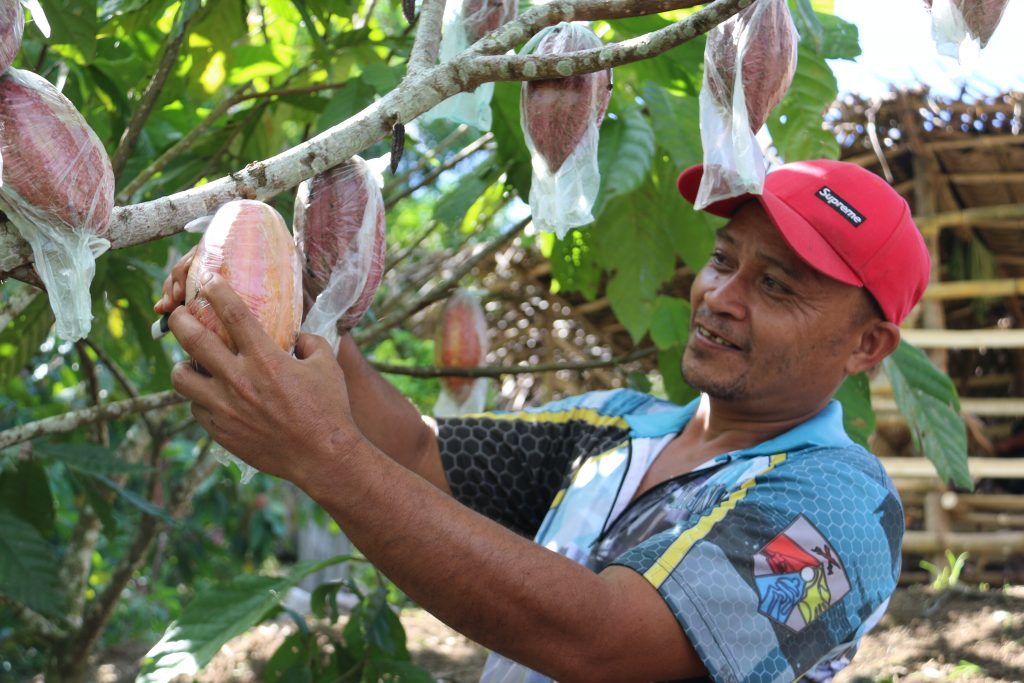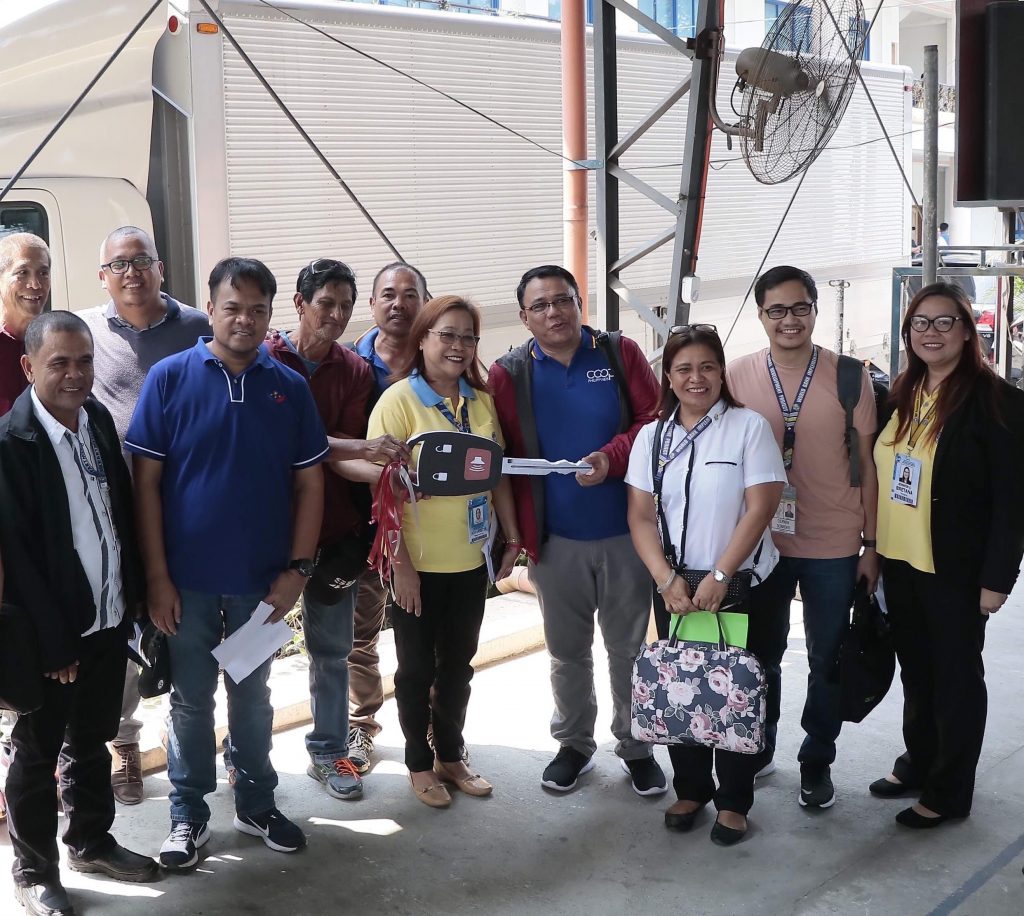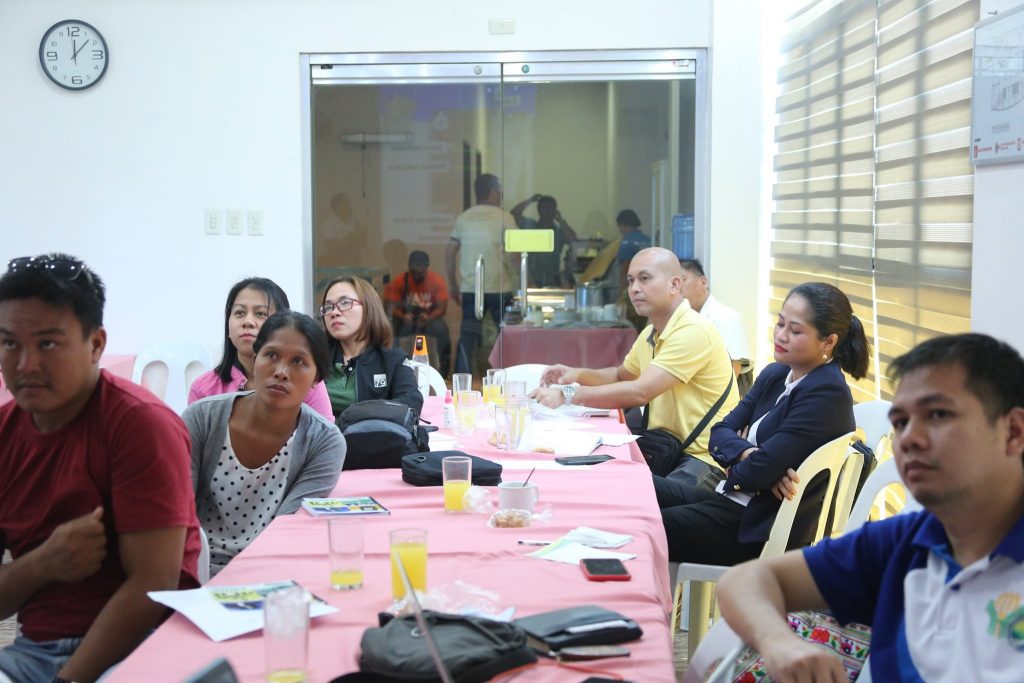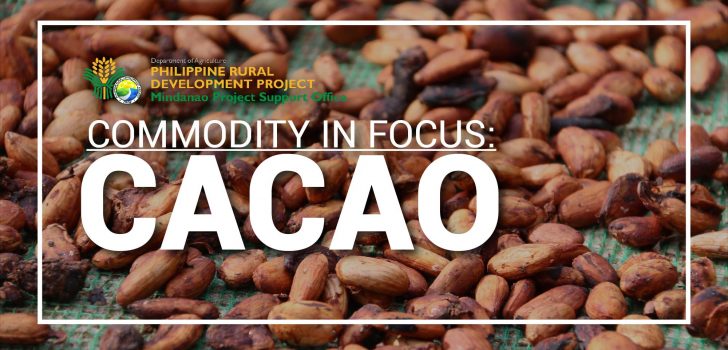
Commodity in Focus: Cacao
Whether we like it or not, chocolates may well be forever associated with the celebration of Valentines’ Day and as we wind down the final days of the love month, let’s take a closer look at the source of that sweet and brown treat, one of the champion commodities supported by DA-PRDP – cacao.
Cacao, whose scientific name literally means “food of the gods” is a tropical plant from whose seeds are derived its main product chocolate. Due to its high demand both locally and internationally – with a global demand estimated at 4.7 million to 5 million metric tons (MT) by 2020 – cacao has been identified as a champion commodity by the Department of Agriculture Philippine Rural Development Project (DA-PRDP) in Mindanao.
There are currently 21 provinces all over the 6 regions of Mindanao with approved VCA’s for cacao but the lion’s share of the production of cacao is centered around the Davao region which produces about 80% of the Philippines’ total cacao output. Mostly produced through backyard farms among mostly second and third generation farmers, cacao production’s challenges in the region and throughout Mindanao include aging cacao trees, lack of good agricultural practices, and scarcity of high-yielding planting materials. These factors result in both low production volume and often times low-quality beans produced.
In response to this, the Department of Agriculture (DA) and other concerned national agencies have provided and continue to provide interventions to help farmers maximize production through irrigation and facilities, local farmers’ training, cacao rehabilitation and marketing of the produce.
In 2019, DA-PRDP’s Project Support Office Mindanao (PSO Mindanao) in coordination with the Regional Project Coordination Office (RPCO 11) conducted a series of focus group discussions with cacao farmers from San Isidro and New Corella last July 23-26, 2019 to update the current VCA for Davao del Norte. Inputs from these discussions highlighted the need for support not only in providing seedlings for propagation but on the enhancement of production capabilities especially with regards to the application of new trends and technology.
This need to go beyond just supplying seedlings is precisely what Department of Agriculture Secretary William Dar emphasized during his keynote address when he visited Davao City for the “Aning Kakaw, Kitang Kita: An Exposition on the Philippine Cacao Industry” last August 24, 2019.
“I will be looking forward to a partnership between ‘big brothers’ who want to come and invest in the development of the cacao industry working with the backyard farmers and I would like the backyard farmers to group themselves collectively because that’s the only way you can leverage and be considered equal partners with the big players,” Dar said. “That is our direction. This is our strategy along with other departments of government to go beyond just providing seedlings.”
The Cacao Industry Roadmap, which was derived from through a series of consultations with stakeholders from both the private and public sectors of the industry, set the domestic production target at 100,000 metric tons (MT) of dried fermented dried beans by 2020 and onward. This roadmap serves as a guide for the harmonized direction and strategies that will guide the development and strengthening of the cacao industry.
For their part, PRDP through its I-REAP component has been pouring in support to various cooperatives and cacao farmers’ organizations throughout the Mindanao cluster to bridge the gap between local production and global demand. One such group in Davao del Norte is the Kapalong Cooperative which is the recipient of P14.34M support for their Cacao Production and Beans Marketing subproject.
Farmer members throughout the towns of San Isidro, Kapalong, Talaingod and Asuncion received support in the form of farming implements such as fertilizers, pruning shears, among others to help in the rehabilitation of the cacao industry in their region. With this support farmers like 43-year-old Ernesto Alferes, who has been farming and marketing cacao in Davao del Norte for almost 30 years, were able to expand and upgrade their operations.
“I was able to expand my farm with over 300 hills already and was able to even use the sloping part of my area. We were also given organic fertilizers and the proper tools like pruning shears and others,” he said.
On the infrastructure aspect, DA-PRDP continues to provide support through the construction of farm-to-market roads to provide better access for cacao farmers selling their produce. The approval of the Concreting of Crossing Blocon, Dalumay-Glamang FMR in Davao del Sur is aimed at helping the four barangays of Bacungan, Dalumay, Malawanit and Glamang, farming communities whose main crops include cacao.
Meanwhile in Koronadal, South Cotabato, DA-PRDP extended its support for cacao production in the region when it turned over a wing van to Tibud Sa Katibawasan Multi-Purpose Cooperative (Tibud SKMPC) the lead proponent group of the P17.9-M grant for the Integrated Cacao Production, Processing and Marketing of Fermented Cacao subproject. Six cooperatives in South Cotabato’s upper and lower valleys are set to implement the subproject in phases with the aim of increasing cacao farmers’ productivity and income in the province.
In Northern Mindanao, DA-PRDP 10 recently conducted a pre-construction conference with PAGLAUM Multipurpose Cooperative (PMPC) and the local government unit of Misamis Occidental in preparation for their Cacao Processing and Marketing subproject. Included in the subproject are support for the construction of facilities such as mechanical and solar dryer and cacao facility/warehouse. The proposed enterprise subproject worth P2,377,835.30 aims to achieve good quality fermented beans of at least 70% of the total production; increase annual net income of the cooperative with an average of 5% after 3 years of implementation; increase farmer-member’s net income per hectare by at least 40% and generate additional jobs for the enterprise.
To date DA-PRDP has a total of 17 cacao enterprise subprojects amounting to P147,327,575. Of the 17 subprojects, 10 have already been approved while the remaining 7 are still in the pipeline.
As global attention turns towards Mindanao for its quality cacao, DA-PRDP through its planning, enterprise and infrastructure components continues in their role to boost local production to reach national production level and stay at pace with global demand.

